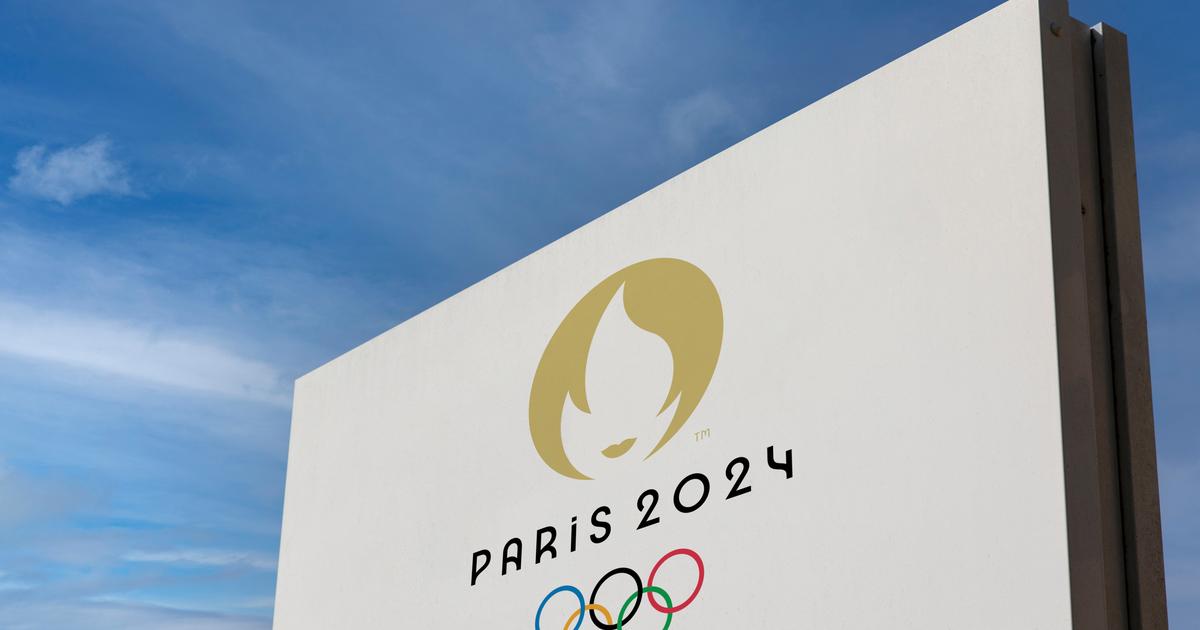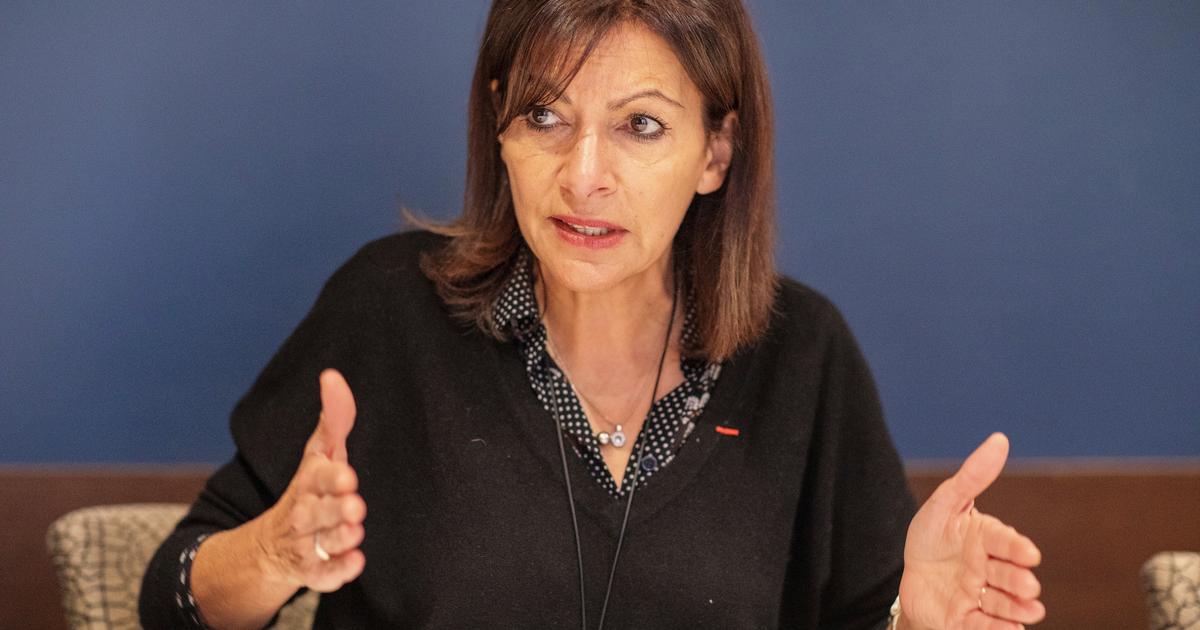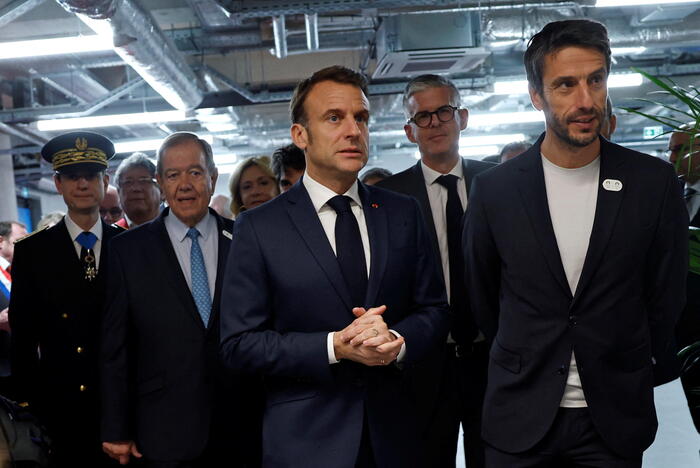Marc Perelman is an architect and university professor in aesthetics at Paris Nanterre. He published
2024, the Olympic Games did not take place,
Les Éditions du Détour, 2021.
To date, the effervescence so desired by the organizers of the Paris 2024 Olympic Games is not visible anywhere.
Despite numerous parties, public meetings and other popular mobilizations, particularly among suburban youth (Seine Saint-Denis), nothing seems to move the French who are looking elsewhere.
The historical period that we are going through does not lend itself to the festivities that the sports merchants invite us to share with them.
All the themes of Olympism rehashed
ad nauseam
–
“peaceful society”, “harmonious development”, “spirit of friendship”, “solidarity”, “fair play”, “Olympic truce”, “mutual understanding”, “respect”
, etc.
leave indifferent the Parisians and more generally the French certainly attached to these values, but obviously subject on their part to the greatest doubt when it comes to the Olympic Games.
Read alsoThe imbroglio of Russian participation in the 2024 Paris Olympics
The Paris 2024 Olympic Games should take place at the same time as the war in Ukraine, or in a period still troubled by it.
The Olympics will crystallize all the internal and external tensions.
While the pension reform has led to a form of anger, not to say sometimes hateful vehemence, towards the President of the Republic and more generally towards the government and parliamentary representation, the major external conflict, in this case the war in Ukraine redoubles internal tensions through the justified fear it arouses.
The Paris 2024 Olympic Games, if they take place, will then be the field and the moment of vast international and national political confrontations.
Far from calming the belligerents,
The Paris 2024 Olympic Games, if they take place, will then be the field and the moment of vast international and national political confrontations.
Marc Perelman
The question of the boycott has always been present throughout the turbulent history of the Olympics.
The neutrality of the IOC was shattered in the face of the reality of the Russian war in Ukraine.
In the height of discontent, the adviser to the Ukrainian president, Mykhailo Podoliak, called
“the IOC [a] promoter of war, murder and destruction.
The IOC happily watches Russia destroy Ukraine and then offers Russia a platform to promote "genocide"
of the Ukrainians, personally targeting Thomas Bach, the German IOC boss.
He calls for a boycott of the Olympics if Russian and Belarusian athletes were to take part in sports competitions, including under the Olympic banner, which is presented quite improperly as neutral.
President Volodymyr Zelensky also denounced the
“hypocrisy”
of the IOC and “
invites Mr. Bach to Bakhmout so that he can see with his own eyes that neutrality does not exist […].
It is obvious that any neutral flag of Russian sportsmen is stained with blood
”.
The Ukrainian government is currently followed by the Baltic States, Norway, Denmark and Poland.
Whatever the sometimes subtle quibbles developed by the IOC and its President Thomas Bach –
“We are not saying that we are apolitical or non-political.
We are politically neutral”
(
Le Soir,
January 21, 2022), – precisely this leitmotif, this catchphrase if not this drivel of “neutrality” presented as benevolent towards athletes who, of course, do not deserve to be banned from the Olympic Games, and who, of course , do not deserve to be taken hostage, in short, this “neutrality” does not last long today in the face of war.
For what ?
Mainly, because these Olympics which should take place in France will be in a Europe shaken by war and where France is directly involved in the conflict through the sale of arms to the Ukrainians.
It must be remembered that the 1940 (Tokyo) and 1944 (London) Olympics had been canceled due to the war on European soil.
After World War II, Germany had not been invited by the IOC to the London Olympics in 1948;
Japan, for its part, will refuse to send a delegation.
For his part, the divine Baron Charles Pierre Fredy de Coubertin was in no way bothered by the war, as long as there was sport.
He wrote :
"I would very well admit for my part to see, in the middle of war, the opposing armies interrupting their fights for a moment to celebrate the loyal and courteous Muscular Games."
(Pierre de Coubertin, August 4, 1935)
.
Let us recall for the record that the vanquished of the First World War (Germany, Austria, Hungary, Ottoman Empire, Bulgaria, etc.) had been banned from the Antwerp Olympics in 1920 because of their role as aggressors.
Marc Perelman
Let us recall for the record that the vanquished of the First World War (Germany, Austria, Hungary, Ottoman Empire, Bulgaria, etc.) had been banned from the Antwerp Olympics in 1920 because of their role as aggressors.
More precisely, their National Olympic Committees had not been invited without therefore being explicitly excluded.
Pierre de Coubertin expressed this dilemma in his own way:
“Barely a few months had passed since the last German soldier had evacuated Belgium and the last cannon shot had sounded on the war front.
Common sense indicated that German teams could not, without imprudence, claim to show themselves in the Olympic stadium before 1924. Europe, would constitute a tear in this Olympic constitution hitherto so resistant;
and a dangerous precedent could result.”
(
Olympic Memoirs,
1931).
Germany is still not invited to the 1924 Paris Olympics, while the other banned countries are (the Ottoman Empire has become Turkey);
Germany will return to the 1928 Amsterdam Olympics. Invariably, Thomas Bach repeats that it is not up to the States to decide on the participation of athletes in the Olympics.
The decision is up to the IOC alone based on what the National Olympic Committees (NOCs) say.
However, on what basis is this decision of exclusion or non-invitation from the Olympic competition taken?
What are the IOC's arguments which plead in favor of the exclusion or sometimes of a certain indulgence vis-à-vis certain athletes?
For example, on a decision of the IOC, South Africa was excluded from the Olympic Games from 1964 to 1988 because of the apartheid which prevailed in this country.
Conversely, the USSR is not excluded from the Olympics after having nevertheless crushed the Hungarian uprising of 1956 and this, fifteen days before the start of the sporting events.
Mexico, either, is not excluded by the IOC as an organizer of the 1968 Olympics, whose army will settle the student revolt - between 300 and 1,000 dead in the Plaza of the Three Cultures - exactly ten days before the start of the Olympics.
The United States was not excluded from the Tokyo Olympics in 1964 either, even though it had bombed North Vietnamese coastal installations two months earlier.
They weren't expelled in 1968 when
they intervened in Vietnam by dropping napalm bombs on the territory of the north of the country and spreading massive doses of defoliant there.
In 2008, five months before the Beijing Olympics, Tibet suffered violent repression from China (the police fired on monks, 200 dead…);
still in 2008, on the night of August 7 to 8, militias trained and supported by the Russians sought to invade Georgia;
in 2014, five days after the end of the Sochi Olympics, Russia invaded Crimea.
Violated twice, the IOC said nothing in defense of its Olympic Truce;
in 2022, four days after the end of the Beijing Winter Olympics, Russia invades Ukraine (according to American intelligence, Xi Jinping had obtained from Vladimir Putin to postpone the dispatch of his tanks for a few days).
There, the CIO reacts.
Moreover,
Russia as a nation has been excluded from the Olympics since 2018 due to state doping: no Russian flag at the Pyeongchang Winter Olympics (2018) in South Korea but a banner “Russian Olympic athletes”;
and a "ROC" banner for the Russian Olympic Committee at the 2020 Tokyo Olympics (2021) and Beijing Winter Olympics (2022).
Clearly, Russian athletes do not have the right to parade behind their national flag during the opening ceremony, they do not have the right to display their flag on their jerseys;
on the other hand, they have the right to be present at competitions once they have proven their quality as non-doped athletes.
Pyeongchang winter (2018) in South Korea but a “Russian Olympic athletes” banner;
and a "ROC" banner for the Russian Olympic Committee at the 2020 Tokyo Olympics (2021) and Beijing Winter Olympics (2022).
Clearly, Russian athletes do not have the right to parade behind their national flag during the opening ceremony, they do not have the right to display their flag on their jerseys;
on the other hand, they have the right to be present at competitions once they have proven their quality as non-doped athletes.
Pyeongchang winter (2018) in South Korea but a “Russian Olympic athletes” banner;
and a "ROC" banner for the Russian Olympic Committee at the 2020 Tokyo Olympics (2021) and Beijing Winter Olympics (2022).
Clearly, Russian athletes do not have the right to parade behind their national flag during the opening ceremony, they do not have the right to display their flag on their jerseys;
on the other hand, they have the right to be present at competitions once they have proven their quality as non-doped athletes.
are not allowed to display their flag on their jerseys;
on the other hand, they have the right to be present at competitions once they have proven their quality as non-doped athletes.
are not allowed to display their flag on their jerseys;
on the other hand, they have the right to be present at competitions once they have proven their quality as non-doped athletes.
From the Greek Games, in the 9th century BC, the Truce was supposed to have been achieved by a peace treaty between three kings Iphitos of Elis, Cleosthenes of Pisa and Lycurgus of Sparta.
Marc Perelman
The line of defense of the IOC is suspended from the "complex status" of the competitors and the precise deadlines imposed by the Olympic Truce (one week before and one week after the start of the Olympic Games and the end of the Paralympic Games).
Avery Brundage (President of the IOC from 1952 to 1972) declared for example in 1956 that
“the Olympic Games are competitions between individuals, not between nations”
.
Even if it is many nations that parade behind their flag (“the parade of nations” was created at the Amsterdam Olympics in 1928);
even if the hymns played in honor of the winner are national;
even if the classification in the number of gold medals, certainly unofficial, but widely displayed by all the media is that of the nations...
From the Greek Olympic Games, in the 9th century BC, the Truce was supposed to have been achieved by a peace treaty between three kings Iphitos of Elis, Cleosthenes of Pisa and Lycurgus of Sparta so that the athletes and spectators of these cities who were almost constantly at war to be able to participate safely in the Olympic Games.
This Truce was in reality a decoy or a myth.
The wars never ceased between the different states.
Recently, this Truce was reactivated in 1991 with the support of the UN by the creation of an International Center for the Olympic Truce (IOTC), itself set up in July 2000 on the joint initiative of the IOC and of Greece.
From the 2004 Olympic Games in Athens, a "truce wall" supposed to protect the host city from external aggression was installed in the Olympic village on which athletes and political figures from around the world affixed their signatures.
The Olympic Truce has therefore always existed as an element of propaganda in favor of the Olympic Games (read on this subject, the works of Jean-Marie Brohm:
1936. Olympic Games in Berlin
and
The Olympic Myth
).
So how can we understand that Russia, initially excluded from the 2016 Summer Olympics (Rio) because of state doping, was fished out in extremis
and
was able to
parade behind its flag
in the end
? when they open?
Will it be for those of Paris 2024?
As surprising as it may seem, Russian and Belarusian athletes were banned from participating in the Olympics because their country invaded Ukraine during the Olympic Truce (which had been violated in 2008 and 2014).
Which today represents the sacrilegious act par excellence according to the IOC.
The IOC statement is explicit:
“This war is a flagrant violation of the Olympic Truce which was in force at the start of the conflict, and therefore of the Olympic Charter.
This is why the IOC has taken unprecedented sanctions against the Russian and Belarusian states and governments, who are solely responsible for this war.”
(IOC press release, February 22, 2023).
Four days after the end of the 2022 Beijing Winter Olympics, Russia invaded Ukraine, thus breaking the Olympic Truce which must be respected exactly one week before the start of the Olympics and one week after the end of the Paralympic Olympics.
Hence the decision of the IOC, which specified that it was indeed
“unprecedented sanctions”.
To my knowledge, this is the first time that the IOC has sanctioned an entire nation for breaking the Olympic Truce.
All these prevarications, evasions, Olympic-diplomatic subtleties, tricks, stratagems of the IOC do not hide the total politicization of the Olympic Games.
Marc Perelman
In a new press release dated March 28, 2023, the IOC Executive Board (15 members) reiterates its warning without deciding on the participation of Russian athletes in the next Paris 2024 Olympic Games. “This war is a flagrant violation of the Olympic
Truce , which was in force at the start of the conflict, and therefore a violation of the Olympic Charter.”
The IOC does not deny the armed conflicts that take place between different countries.
In this declaration, he lists
“the 70 other armed conflicts and wars in progress in the world […] in particular the situations in the Middle East, in the Horn of Africa and in the South Caucasus”.
But for the CIO, armies, wars, politics stop at
“Games can set an example of a world where everyone follows the same rules and respects each other.
They encourage us to solve problems that arise by building bridges between peoples to help them understand each other better”.
Read alsoPierre de Coubertin the apostle of modern Olympism
All these prevarications, evasions, Olympic-diplomatic subtleties, tricks, stratagems of the IOC do not hide not only the total politicization of the Olympics but also the way in which the IOC absolves itself of all responsibility.
The IOC Executive Board lets the International Federations, sometimes in conflict with the National Federations, decide the fate of the athletes and recommends:
“Athletes with a Russian or Belarusian passport can only compete as neutral individual athletes”.
The latter will have to prove that they do not support the war, that they are not under contract with the army, and that they meet the requirements of the fight against doping.
Who will verify all of these conditions?
Who can believe in such commitments?









